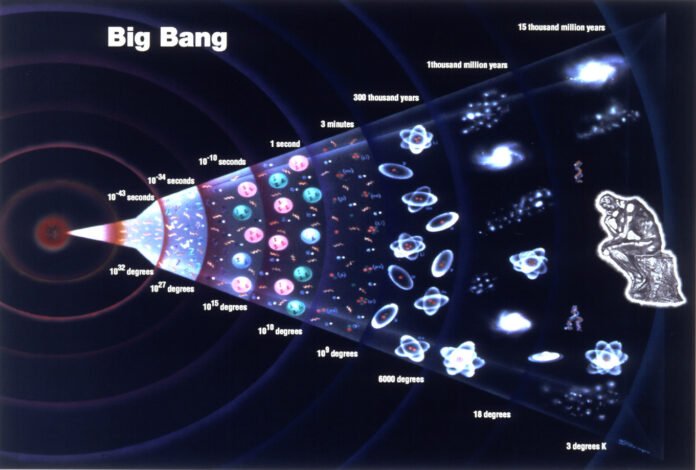The study of astronomy has captivated human curiosity for thousands of years. From ancient civilizations like Egypt and Greece to modern-day, humans have gazed at the sky in search of answers about the universe and our place within it. Recent advances in technology and our understanding of the universe have brought us closer to unraveling some of the universe’s greatest mysteries. In this article, we explore recent developments in astronomy, including new discoveries, technologies, and theories that are expanding our understanding of the cosmos.
New Discoveries: Unraveling the Secrets of the Universe
Astronomers are constantly unearthing new discoveries about the universe, from distant galaxies to new planets. Here are some of the most remarkable recent discoveries in astronomy:
-
Exoplanets: An Exploration of Planetary Systems
In recent years, astronomers have made groundbreaking discoveries about exoplanets, which are planets that orbit stars other than our sun. These discoveries have unveiled the possibility of life beyond Earth, and expanded our understanding of the diversity of planetary systems.
One particularly fascinating discovery is the Trappist-1 system. This planetary system, located 40 light-years from Earth, contains seven Earth-sized planets, three of which are located within the habitable zone where liquid water could exist.
-
Gravitational Waves: Illuminating the Behavior of Mysterious Objects
In 2015, astronomers detected gravitational waves for the first time, validating a prediction made by Albert Einstein over 100 years ago. Gravitational waves are ripples in spacetime that result from the movement of massive objects, such as black holes or neutron stars.
Since the first detection, astronomers have observed numerous gravitational wave events, providing new insights into the behavior of these mysterious objects and the nature of the universe.
-
Fast Radio Bursts: A Mysterious Signal from Deep Space
Fast radio bursts (FRBs) are brief, intense bursts of radio waves that originate from deep space. Astronomers have detected dozens of FRBs, but the source of these mysterious signals remains a mystery.
Some theories suggest that highly magnetized neutron stars or the collision of two neutron stars produce FRBs. Others propose more exotic explanations, such as signals from extraterrestrial civilizations.
New Technologies: Advancements in Observing the Universe
Advancements in technology have enabled astronomers to make new discoveries and explore the universe in unprecedented ways. Here are some of the most innovative new technologies in astronomy:
-
The James Webb Space Telescope: The Future of Infrared Observations
Set to launch in 2021, the James Webb Space Telescope (JWST) is poised to be one of the most powerful telescopes ever built. The JWST will observe the universe in infrared light, allowing astronomers to study distant objects and explore the early universe in greater detail.
-
The Square Kilometer Array: A Radio Telescope of Unprecedented Scale
The Square Kilometer Array (SKA) is a radio telescope currently under construction and is set to be one of the largest scientific projects in history. With thousands of radio antennas spread over thousands of kilometers, the SKA will allow astronomers to study the universe in unprecedented detail.
-
The Laser Interferometer Space Antenna: A New Era in Gravitational Wave Observations
The Laser Interferometer Space Antenna (LISA) is a planned space-based gravitational wave observatory that is set to launch in 2034. LISA will consist of three spacecraft that will work together to detect gravitational waves from sources such as black holes and neutron stars.
New Theories: Expanding Our Understanding of the Universe
Astronomy is a field that is constantly evolving, with new theories and ideas emerging all the time. Here are some of the most groundbreaking recent theories in astronomy:
-
Dark Matter: The Elusive Substance
Dark matter is a mysterious substance that makes up a large portion of the universe’s mass but does not interact with light, making it difficult to detect. Despite its elusiveness, astronomers are certain that dark matter exists, and many theories have been proposed to explain its nature.
One popular theory is that dark matter is made up of weakly interacting massive particles (WIMPs), but so far, no direct evidence of WIMPs has been found.
-
Multiverse: The Possibility of Multiple Universes
The concept of the multiverse suggests that there may be multiple universes, each with its own set of physical laws and properties. While the idea of a multiverse remains controversial, some scientists believe that it could help explain certain mysteries of the universe, such as the fine-tuning of physical constants that make life possible.
-
Modified Gravity: A New Understanding of Gravitational Forces
The theory of modified gravity suggests that the laws of gravity may be different from what we currently understand. This theory proposes that gravity is stronger on large scales, which could help explain observations of the accelerating expansion of the universe without the need for dark energy.
Implications for Society: From Practical Applications to STEM Education
The advances in astronomy have not only expanded our understanding of the universe but also have important implications for society. Here are some of the ways in which astronomy impacts our lives:
-
Technology: Practical Applications in Our Daily Lives
The technology developed for astronomy has numerous practical applications, from medical imaging to GPS navigation. Many modern technologies, such as solar panels and LED lighting, were initially developed for space exploration and have since been adapted for use in everyday life.
-
Education: Inspiring the Next Generation of STEM Leaders
Astronomy is an essential field for inspiring and educating the next generation of scientists and engineers. The discoveries and technologies developed in astronomy can help to engage and motivate students in science, technology, engineering, and mathematics (STEM) fields.
-
Environmental Impact: A Low Environmental Footprint
Astronomy research has a relatively low environmental impact compared to other industries, such as manufacturing and transportation. However, the construction and operation of observatories and telescopes can have local environmental impacts, such as light pollution and disruption of natural habitats.
Conclusion: Discovering Our Place in the Cosmos
The advances in astronomy have revolutionized our understanding of the universe and have opened up new possibilities for exploration and discovery. From the discovery of exoplanets to the detection of gravitational waves, astronomy continues to push the boundaries of our knowledge and understanding.
As new technologies and theories emerge, the implications for society are vast, from practical applications in medicine and technology to inspiring the next generation of STEM leaders. Ultimately, the study of astronomy helps us to better understand our place in the universe and to appreciate the beauty and complexity of the cosmos.
In conclusion, the study of astronomy is an ever-evolving field that continues to push the boundaries of human knowledge and understanding. Recent advances in technology and our understanding of the universe have expanded our understanding of the cosmos, uncovering new discoveries, developing innovative technologies, and proposing groundbreaking theories. The implications for society are significant, from practical applications to inspiring the next generation of STEM leaders. Through the study of astronomy, we gain a deeper appreciation of our place in the universe and the wonder and complexity of the cosmos.
Google News | Telegram
















